The Evangelists say that, in the absence of God's children, He sends Angels from Heaven to sing, praising the birth of the Messiah. God sends the angels, which has everything to do with the liturgy.
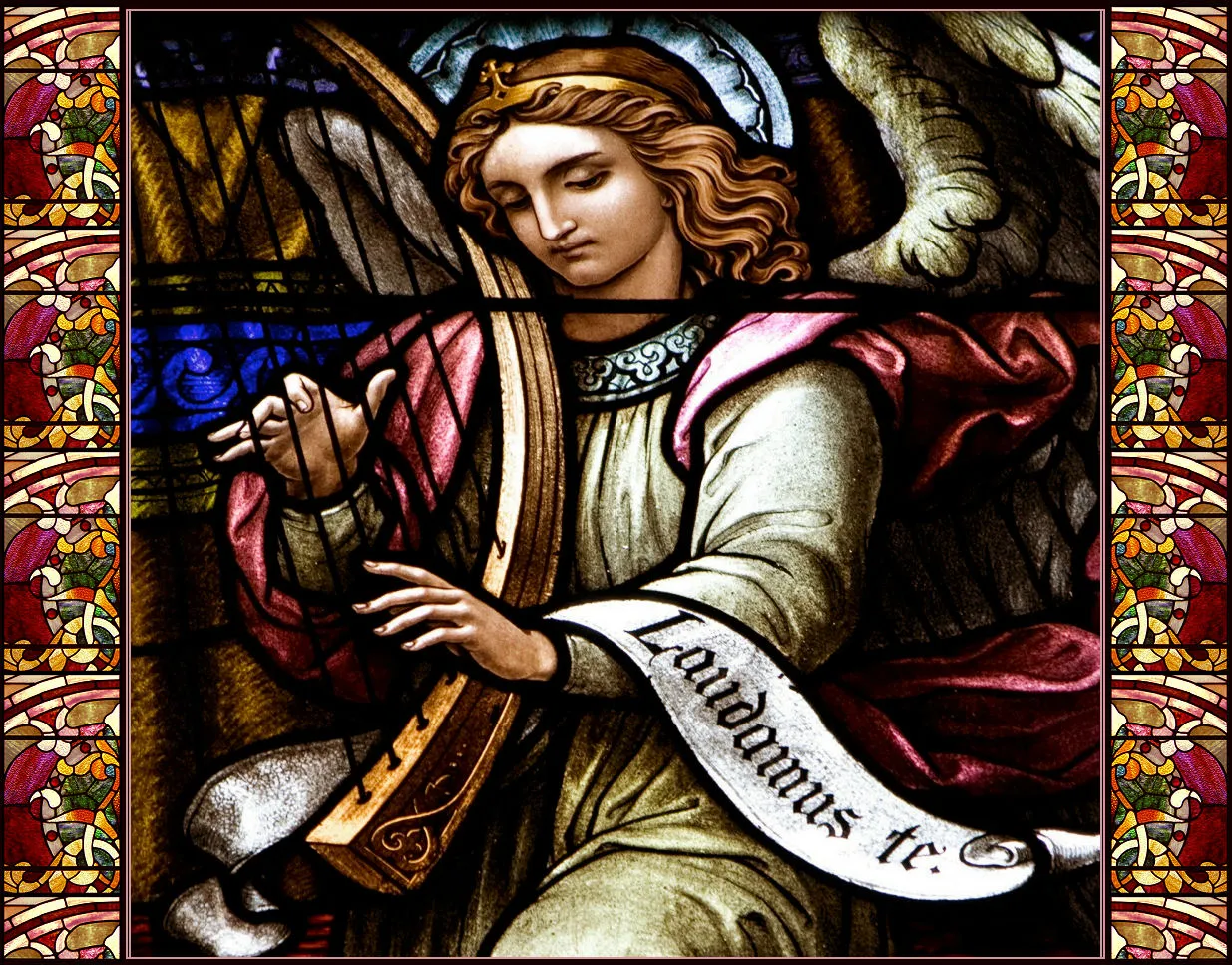
Angel with harp, stained glass - Image Source
When we talk about celebrating the liturgy well, music is something so crucial that, in the absence of a choir, a choir to sing in the face of such a great mystery, God composes a choir with his angels to sing "glory to God in the heights and on earth peace to men of goodwill," which is what we sing throughout the Mass. We sing in the liturgy of Mass, the song of the Angels, when Jesus, the eternal Word of God, became man.
Liturgical music is so essential that God created a choir to accompany the great mystery of the Incarnation of his Son, the birth of his Son. He had already been incarnated in the womb of Our Lady, but now He was born. Our Lady gave birth to the second person of the Trinity, and therefore, she is the Mother of God.
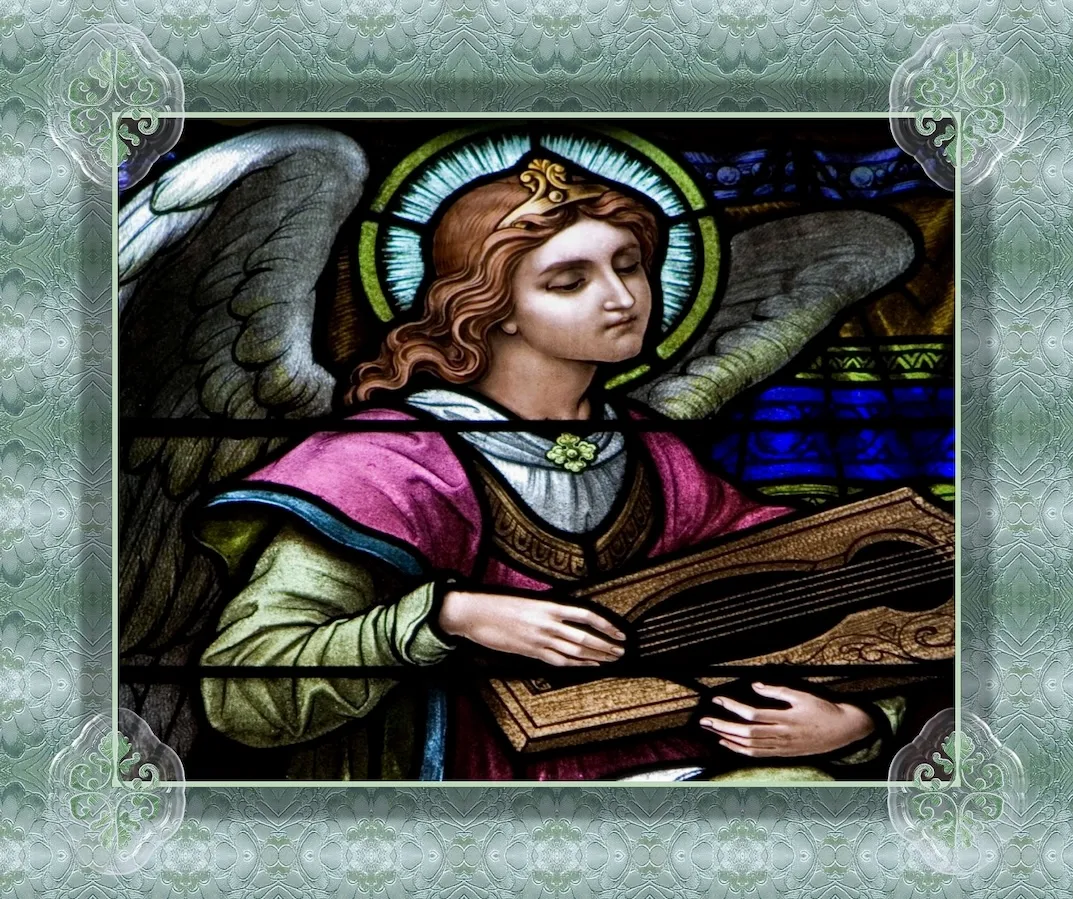
Angel with dulcimer, stained glass - Image Source
Jesus existed before all centuries in eternity and is now born in time. God, who is eternal, enters time. God, who is pure spirit, becomes man. That is why Mary is the Mother of God, not because she existed before God. Mary Most Holy is a creature but is the Mother of God in time.
And since her journey in this world has already ended and she is already with God, she who is a mother was the Mother of God in time and continues to be the Mother of God in eternity, not because she is before him, but because she continues to be that which was here in this world.
If in this world she is the Mother of Jesus, and Jesus is God and man, Holy Mary is not only the Mother of the man Jesus; the man Jesus is also the eternal God, who already existed before all centuries.
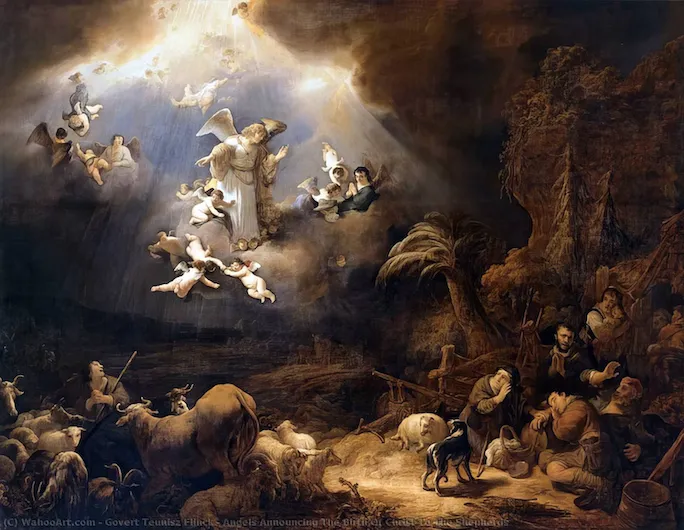
"Angels announcing the birth of Christ to the shepherds" painting by Govert Teunisz Flinck - Image Source
This great mystery is ignored by most people. The angels then announce to the shepherds in the fields that the eternal Word of God, the Messiah, was born. And then, the shepherds come to worship the Baby Jesus and the angels to sing. Saint Joseph, the most just of men, aimed to protect and educate the Baby Jesus.
Most Holy Mary, the purest and holiest of women who ever existed, and after whom no other will exist like her, is the Mother. The milk that Jesus drank is the milk of an Immaculate Mother, of a Mother who was not touched by sin. The hands that held that Most Holy Son are the pure hands of a Mother who was not touched by sin.
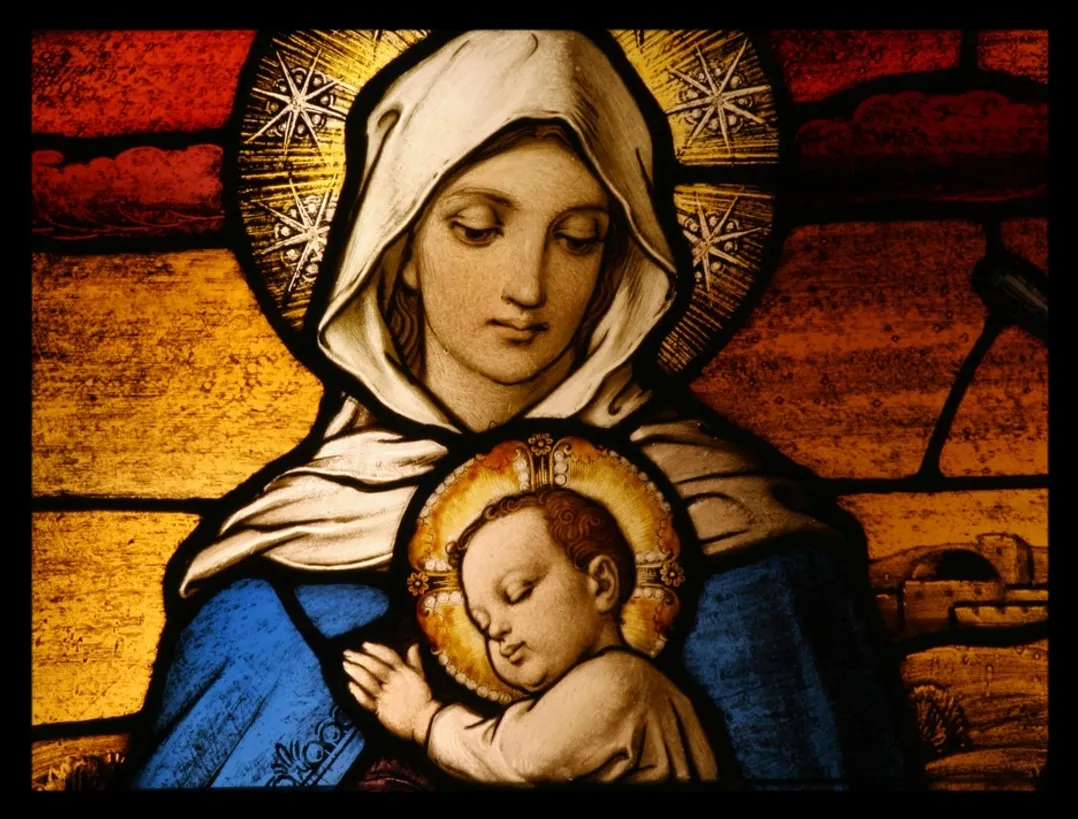
Virgin Mary with Jesus, stained glass - Image Source
The Holy Scripture, when it speaks of Saint Joseph, uses for Saint Joseph a compliment that was the highest praise that could be given to a Jew. The Jews did not call very good people Saints; they called it fair. And the Gospels, the Gospel of John and Luke especially, will say that Joseph was a just man: just, holy, God-fearing.
We need to think about the mission of Saint Joseph. Moses had the mission of speaking to God and leading God's people. Now, compare Moses, the greatest prophet of the Old Testament, with Saint Joseph. Moses had the mission of speaking to God and transmitting God's will to the people.
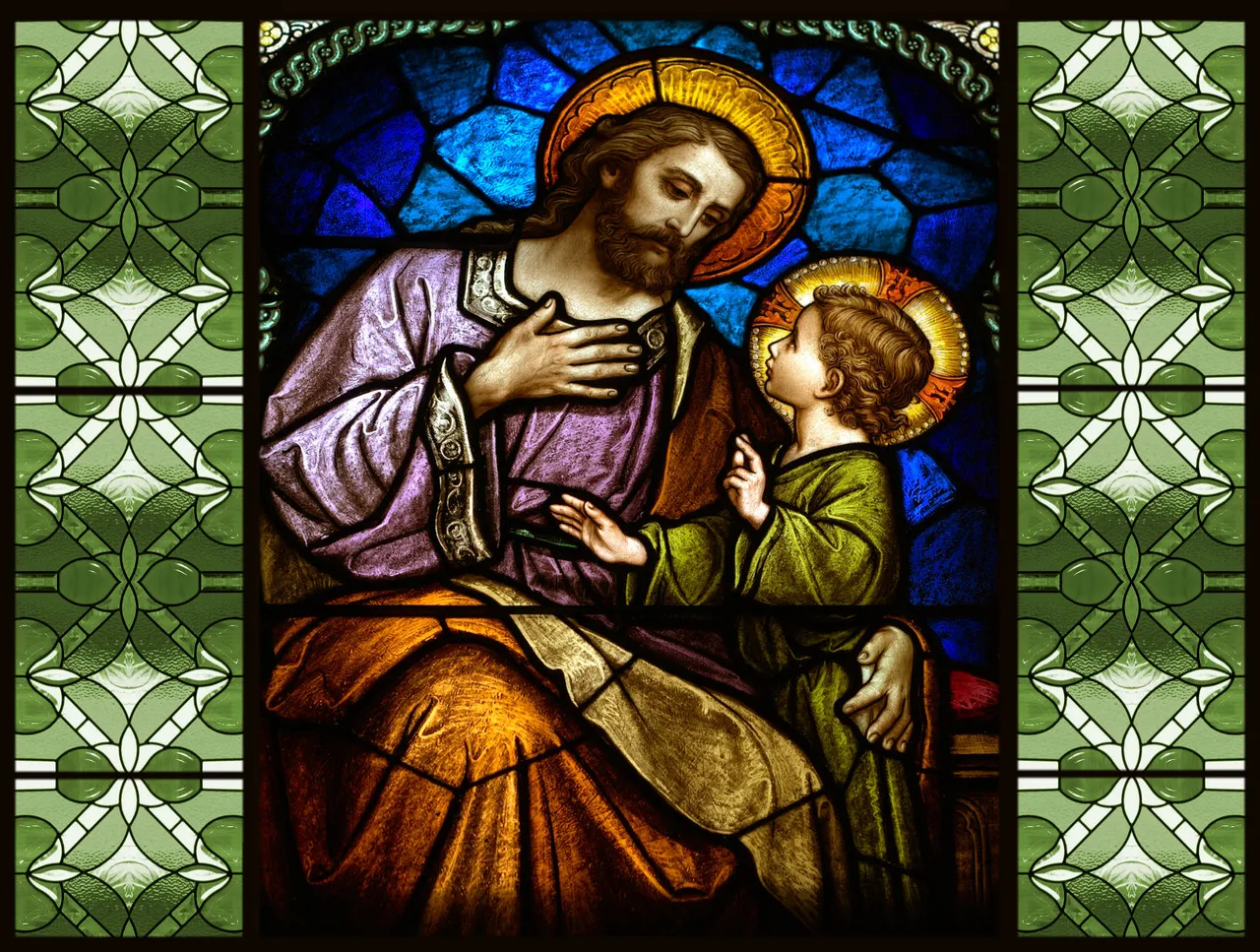
Saint Joseph with Jesus, stained glass - Image Source
Joseph was given the mission to raise the Son of God himself as his Son, to give the Son of God his profession, and to protect him with his own life. No one received this privilege. Saint Joseph's hymn says: "The Divine Word wanted to give you the name of the Father."
Have you ever stopped to think that Jesus, who has the Father, the eternal Father, God the creator of all things, who is His Father par excellence, chose to call Saint Joseph his father here on Earth?
Imagine a person with a Father who is the Eternal and Almighty God, deciding to call someone else father. At the very least, this someone has to be very similar to his legitimate Father. Jesus, to call Joseph his father, at the very least, gave him many graces. Saint Joseph received many graces and responded to them all to resemble the eternal Father.
Bibliography; Jesus Cristo, sua Vida, sua Paixão e seu Triunfo by Padre Augustin Berti

Follow me on Twitter